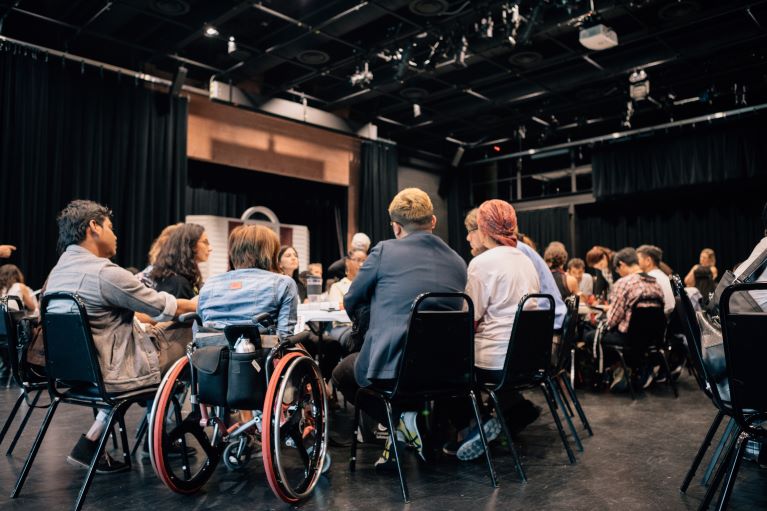Why research and evaluation need to center inclusion and equity

Difficult but necessary conversations in the U.S. about racial and other identity-based inequities have led IREX to reflect deeply on our organization and the way we work. Aligned with the momentum from racial and social justice movements around the globe, the entire global development sector is becoming more vocal about the need to decolonize our minds and practice. After many rich internal discussions at IREX about what these important shifts might look like for our practice, IREX’s Center for Applied Learning and Impact put together a brief practical tool to help us and other organizations do better in a key practice area: research and evaluation.
The norms and values underlying most of our sector’s research and evaluation, what we are calling “knowledge gathering,” were forged because of a history that carries the burden of a colonial framework and mindset. Without realizing it and certainly without intending to, when we gather information, we may reenact these colonial relationships and principles. For example, the quest for rigor may be considered as an attempt to be as faithful to the truth as possible so that it is universally understood and trusted. However, this quest for developing universal understanding may not always fully include community members. When research methodologies are derived solely from traditional academic frameworks, we potentially delegitimize the lived experiences and knowledge systems of those closest to the problems we are trying to solve. Additionally, a traditional academic approach places the arbitration of truth on researchers rather than communities and may suggest that communities are incapable of telling their own stories truthfully.
A shift in knowledge gathering frameworks
If we define and measure effectiveness, sustainability, and scalability solely on the terms set by donors and other global actors, we risk excluding community perceptions of success. Pervading narratives of what constitutes “objectivity” often exclude local knowledge systems, lived experiences, and human emotion.
There is a new consideration for centering the emotions we feel when doing on-the-ground fieldwork or research. Previously, emotions have been pushed to the side and not written about. This did not necessarily lead to truthful accounts of what is happening on the ground. Every space holds emotions, and there is no such thing as ’neutrality.’
Today, we can no longer afford to pretend that we can separate what one feels and what one experiences with their body. In brief, we need to bring our entire bodies to what we experience in order to make sense of our research and empathize with the communities we work with.
- Amina Soulimani, Afrika Youth Movement; Youth Excel Global Youth Advisory Council
To truly center equity and inclusion in knowledge gathering, we needed to create new practices. We need to shift our frameworks to determine what assets communities bring to research, rather than judging their perceived deficits. And we must begin to realign our practices to reflect how much we value the potential of communities.
IREX embarked on a discovery of relevant literature and policy to sketch a portrait of the current state of norms for research and evaluation, taking a thorough look at both the benefits and challenges of the current state. We analyzed the root causes of the current state and found that global structures of power inequality - historically, imperialism and colonialization, and their long, complicated aftermath - are at the root of our current set of norms for research and knowledge. Inspired by the literature and by many conversations with colleagues, partners, and experts, we imagined an ideal state and set about devising practical steps to get us closer to the ideal state. Out of this process, IREX created a Guide for More Equitable and Inclusive Knowledge Gathering as an initial, concrete step toward achieving these goals: to help transform inequitable power structures of the past and embrace inclusive and just practices.
Long-term benefits
Shifting our knowledge gathering (i.e., research and evaluation) practices in this has the potential to
- Strongly ground development work in real-world evidence
- Decenter the global north’s perspectives and learning priorities
- Support higher quality knowledge gathering and ultimately, localizing knowledge systems
Our guide builds on and attempts to push further the inclusive practices that the development sector has been enacting. We understand that the long-standing precedents that underpin structural knowledge inequities cannot be resolved by a guide alone. However, equitable and inclusive knowledge gathering is not just the right thing to do; it also yields more relevant, actionable, and impactful knowledge products. By bringing these considerations to light, we can all continuously strive to be more equitable and inclusive across all phases of our knowledge-gathering processes. It is a critical step toward living our organizational mission to help create a more just, prosperous, and inclusive world.